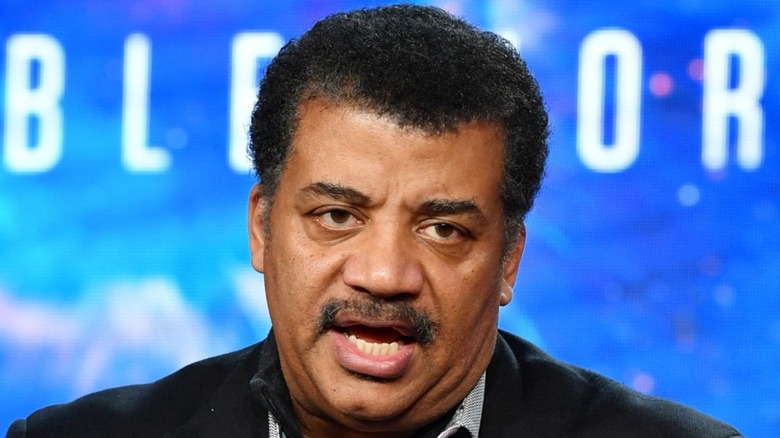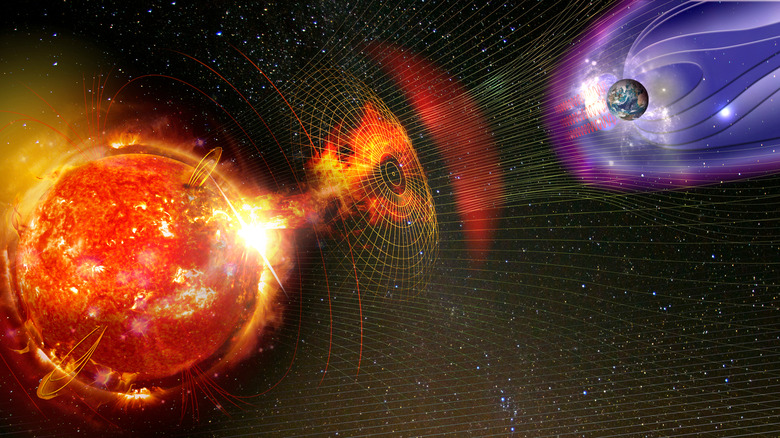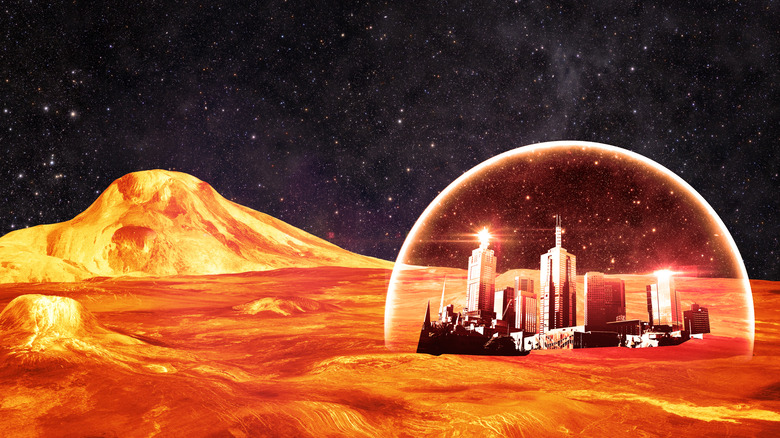Why Humans Will Never Go To Mars, According To Neil deGrasse Tyson
Before we consider going to Mars, it's worth remembering just how dangerous spaceflight can be. To date, 14 astronauts and four cosmonauts have been killed during spaceflight. An additional 13 (astronauts or cosmonauts) have been killed during training or testing for spaceflight. Technically speaking, only three of these deaths occurred outside Earth's atmosphere, beyond the Kármán line, in what's generally accepted as "in space."
As the Daily Mail reports, a variety of experts believe that sending astronauts on Mars missions will result in further deaths. This includes Elon Musk, CEO of SpaceX, according to Space.com. "I think the first journeys to Mars are going to be really very dangerous. The risk of fatality will be high; there's just no way around it," said Musk. "It would be, basically, 'Are you prepared to die?' If that's OK, then, you know, you're a candidate for going."
According to SciTechDaily, both SpaceX and NASA are actively working toward sending astronauts to Mars to eventually colonize the planet. Since humanity's successfully landed on our nearby Moon, space agencies have been looking to Mars — the next closest astrological body with the potential necessary for humanity to make the effort to investigate (via European Space Agency).
Space agencies on Earth have been attempting to reach Mars with unmanned craft for decades. We've succeeded in reaching Mars a few times in the relatively recent past — even with probes and remote-controlled rovers aplenty. We've also failed quite a few times — even before we had human astronauts involved. As Popular Mechanics highlights, of the 47 missions to Mars to date, 28 have failed.
The dangers of radiation
Apart from the obvious dangers of sitting atop a massive rocket even before leaving Earth, the journey outside our atmosphere has plenty of potential for failure and loss of human life. According to SpaceX, the trip to Mars with a human-piloted mission is expected to take around six months. This half-year of space travel will in itself be dangerous due to the significant amount of radiation that'll penetrate the spacecraft during the trip.
As the European Space Agency (ESA) highlights, astronauts could receive a dose of radiation up to 700 times higher than they would experience under the protection of Earth's atmosphere and magnetic field. After a single day in space, the human body receives as much radiation as it would an entire year here on Earth, according to the ESA.
The ESA has been studying ways to protect astronauts from space radiation by using particle accelerators to bombard different types of materials with lithium. These tested materials may someday provide shielding for ships making extended trips through space.
Mars colonization -- the impossible dream?
Even after astronauts reach Mars, radiation shielding will be a necessary measure for long-term human health. As Phys.Org reminds us, unlike Earth, Mars does not have a protective magnetosphere and only a thin atmosphere as a result. During its 2001 mission, NASA's Mars Odyssey spacecraft detected radiation levels that would expose astronauts on Mars to 8,000 millirads (8 rads) of radiation per year. While not immediately fatal, prolonged human exposure to these levels of radiation could result in sickness, DNA damage, cancer, and potential death.
So while Mars might be the most Earth-like planet in our solar system, it is still extremely inhospitable to not only human life, but just about any life that we know of. Consequently, it is not difficult to understand why Neil deGrasse Tyson doubts the idea that humanity would ever establish a long-term colony on Mars, saying in a Futurism interview, "I'm skeptical that you'll find legions of people that will go there and want to stay."
Going to Mars on a single short visit is one thing. Staying on Mars long-term is a completely different proposition. Neil deGrasse Tyson leans strongly towards the view that sending astronauts to live on Mars and potentially colonize it is not only foolhardy but quite probably impossible.
Tyson versus Musk
In an interview with Futurism's Jolene Creighton, Neil deGrasse Tyson said rather than colonizing Mars, we should aim for "just an outpost." Tyson went on to describe the highly unlikely possibility that humanity would be able to develop the necessary "entire infrastructure in which you live that mimics Earth."
"We'd rather stay where it is warm and comfortable," said Tyson. While Tyson is not optimistic about humans establishing a large footprint on Mars, his position stands in sharp contrast to Elon Musk, CEO of SpaceX. Despite his assertions about early explorers needing to prepare for the worst, Musk continues to dare to dream that we might reach Mars soon and is getting the SpaceX Starship ready for the journey.
According to NPR, Musk is targeting 2029 as the timeframe for landing the first humans on Mars with cargo missions sent in advance to give astronauts the resources and materials they will need to set up an initial base. No doubt, we will all be watching in awe as this unfolds and wonder who will ultimately be right about the future Mars holds for human civilization: Neil deGrasse Tyson or Elon Musk?


